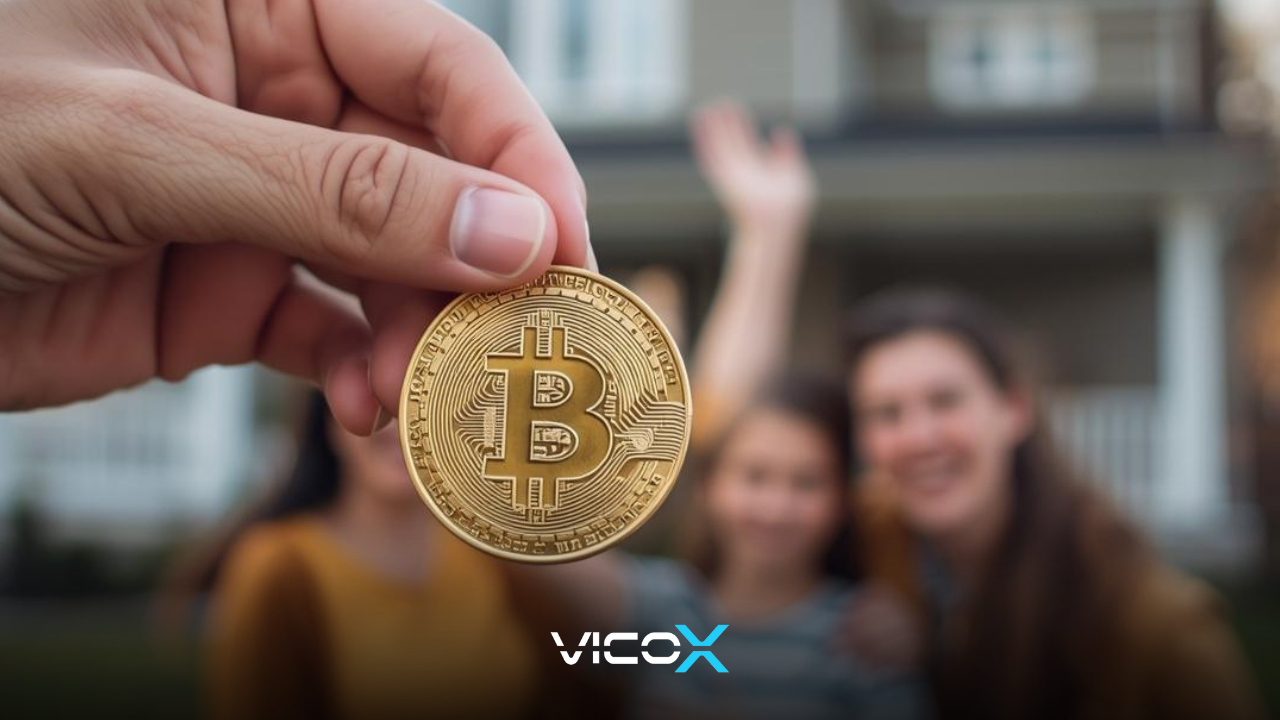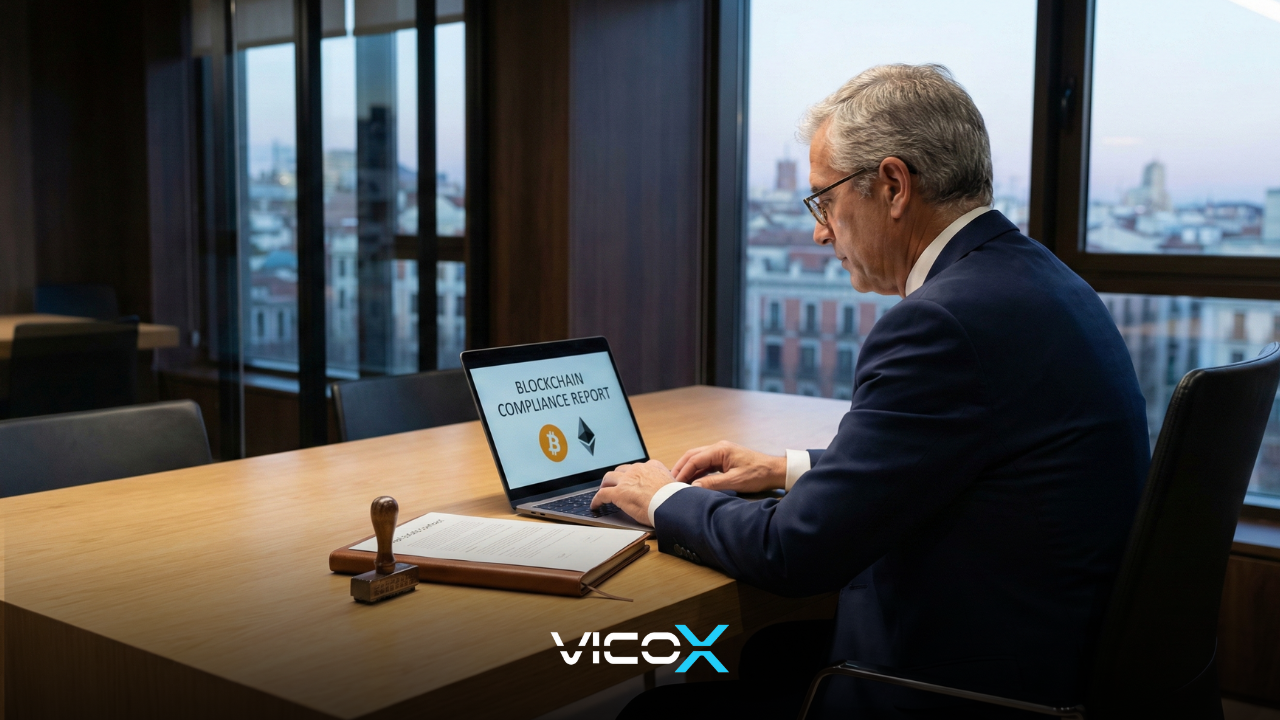In 2025, crypto-to-real-estate transactions are reaching maturity. More investors are using digital assets to acquire property abroad, seeking jurisdictions that combine legal clarity, reliable payment rails, and open real-estate markets.
This guide, prepared with insights from Vicox Legal, highlights the top three countries where buying real estate with cryptocurrency is practical, secure, and legally supportable, and outlines the legal, tax, and operational steps needed to transact safely.
Why Country Selection Matters for Crypto Real Estate
Choosing the right jurisdiction directly impacts:
- Transaction speed and security
- Tax exposure and compliance risk
- Legal certainty for both buyer and seller
- Ease of crypto-to-fiat conversion
The best destinations for crypto real estate meet four key conditions:
- Clear crypto regulation
- Established real estate transaction frameworks
- Reliable on-ramp/off-ramp partners
- Notarial and registry systems that accept crypto-origin funds with proper documentation
Top 3 Countries to Buy Real Estate with Crypto in 2025
1. Spain: Best Mix of Market Depth, Legal Clarity, and Investor Services
Market Snapshot
Spain remains one of Europe’s most dynamic real estate markets, driven by strong demand in cities like Madrid, Barcelona, Marbella, and Valencia.
Legal & Regulatory Environment
Spain recognizes crypto as a digital asset, subject to AML/KYC compliance.
While property transactions require traceable proof of funds, crypto-origin capital is legally acceptable when properly documented.
Practical Advantages
- Experienced legal and notarial ecosystem for crypto transactions
- Robust real estate inventory across premium zones
- Reliable OTC desks, exchanges, and payment processors for crypto-to-euro conversion
Key Tax Considerations
- Capital gains tax may apply when converting crypto to euros
- Property Transfer Tax (ITP) or VAT applies depending on the property type
- Distinct non-resident vs. resident tax regimes — professional structuring recommended
How to Transact Safely in Spain
- Use a regulated exchange or payment provider for conversion
- Prepare a full AML/KYC and source-of-funds dossier
- Engage a Spanish law firm (like Vicox Legal) to manage contracts and notary process
2. Portugal: Investor-Friendly Taxation and Strong Crypto Adoption
Market Snapshot
Portugal remains a preferred destination for international real estate investors, thanks to its stable economy, vibrant cities (Lisbon, Porto), and favorable tax environment.
Legal & Regulatory Environment
Portugal has historically offered lenient tax treatment for individuals holding crypto.
While new regulations evolve, it remains a viable and friendly option for crypto-backed property purchases.
Practical Advantages
- Streamlined notarial procedures with proper documentation
- Ongoing tax flexibility for crypto gains (verify case-by-case)
- Attractive long-term appreciation potential in major urban markets
Key Tax Considerations
- Certain crypto gains exemptions may still apply
- IMT (Property Transfer Tax) and IMI (Municipal Property Tax) are due
- Always obtain local tax advice to confirm current status
How to Transact Safely in Portugal
- Prepare proof of origin and conversion documentation
- Work with regulated payment or escrow providers
- Coordinate with local counsel to ensure documentation acceptance
3. Dubai (UAE): Fastest Adoption and Direct Crypto Payments
Market Snapshot
Dubai is leading global adoption of digital asset infrastructure, with several developers accepting direct crypto payments for new developments.
Legal & Regulatory Environment
The UAE, and especially Dubai, has introduced clear virtual asset frameworks through specialized regulators. Transactions still require compliant onboarding and licensed settlement.
Practical Advantages
- Developers in top projects accept crypto directly via licensed gateways
- Zero personal income tax and a thriving luxury property segment
- Fast transaction cycles with experienced partners
Key Tax & Operational Considerations
- Even when paying in crypto, final registration often requires fiat settlement
- Ensure counterparties are licensed and conversions are documented
- Maintain full transaction records for compliance audits
How to Transact Safely in Dubai
- Use licensed on/off-ramp providers and keep receipts
- Verify the developer’s crypto acceptance policy through local counsel
- Confirm notarial and land registry compliance prior to closing

Comparative Checklist: Spain vs. Portugal vs. Dubai
| Criteria | Spain | Portugal | Dubai |
|---|---|---|---|
| Regulation clarity | Medium–High | Medium | High (in free zones) |
| Ease of on/off-ramp | Good | Good | Excellent |
| Tax complexity | Medium–High | Low–Medium | Low |
| Notarial/registry friction | Strict | Moderate | Developer-dependent |
Operational Playbook for International Crypto Investors
- Pre-screen jurisdictions based on residency, tax exposure, and investment goals.
- Prepare a KYC + Source-of-Funds dossier (wallet exports, exchange receipts, ID).
- Identify regulated conversion partners (OTC / exchange / payment provider).
- Include conversion clauses in the purchase contract (price and rate mechanism).
- Use escrow (crypto or fiat) to safeguard funds pre-closing.
- Coordinate with local notary and registry for title transfer.
- File tax returns and archive all documents for compliance.
Conclusion
Choosing the right country and structuring your transaction correctly are the two keys to success when buying real estate with cryptocurrency in 2025.
Vicox Legal assists international investors in Spain, Portugal, and Dubai, offering legal certainty, due diligence, and compliant transaction support from start to finish.
FAQ: Buying Real Estate with Cryptocurrency
Q1. Is it legal to buy property with crypto in Spain, Portugal, or Dubai?
Yes, in all three countries, as long as funds are traceable, compliant, and converted through regulated channels.
Q2. Do I need to convert crypto to fiat before closing?
Often yes. Most registries and notaries require fiat settlement, but some Dubai developers accept direct crypto payments.
Q3. What taxes apply to crypto-funded property purchases?
Capital gains tax on conversion, property transfer taxes, and annual property levies may apply depending on jurisdiction and residency status.




